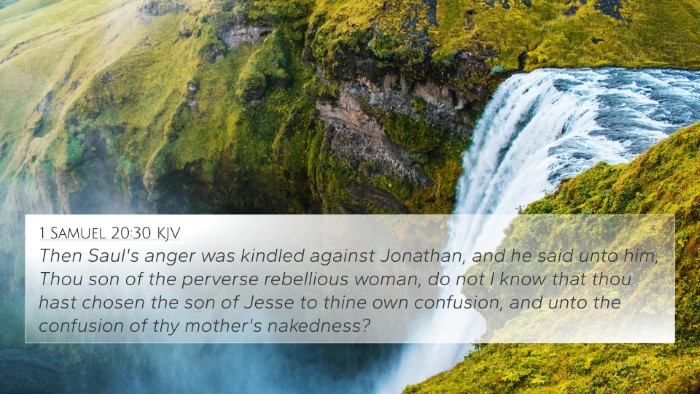Understanding Proverbs 12:16
Proverbs 12:16 states, "The vexation of a fool is known at once, but the prudent ignores an insult."
This verse contrasts two types of responses to provocation: those of a foolish person and those of the prudent. A fool reacts immediately to insult with anger or a verbal outburst, revealing their vexation and lack of self-control. On the other hand, a wise, prudent person chooses to overlook the insult, demonstrating maturity and restraint.
Interpretative Insights
-
Matthew Henry: Henry remarks that a wise person, recognizing the futility of engaging with insults, chooses to respond with thoughtful restraint. This reflects inner strength and emotional maturity.
-
Albert Barnes: Barnes emphasizes that the immediate reaction of a fool showcases their inability to manage emotions. In contrast, the prudent person's decision to ignore an insult is a sign of wisdom, demonstrating the ability to maintain peace rather than escalate conflict.
-
Adam Clarke: Clarke elaborates on the need for discernment in responses to hostility. He notes that by ignoring insults, one preserves harmony and displays strength in character. Clarke highlights the importance of not being easily provoked.
Biblical Cross-References
Proverbs 12:16 has several related scriptural passages that emphasize similar themes regarding wisdom, self-control, and the folly of quick reactions:
- Proverbs 14:29: "Whoever is slow to anger has great understanding, but he who has a hasty temper exalts folly."
- Proverbs 19:11: "Good sense makes one slow to anger, and it is his glory to overlook an offense."
- Ecclesiastes 7:9: "Be not quick in your spirit to become angry, for anger lodges in the bosom of fools."
- James 1:19-20: "Know this, my beloved brothers: let every person be quick to hear, slow to speak, slow to anger; for the anger of man does not produce the righteousness of God."
- Proverbs 15:1: "A soft answer turns away wrath, but a harsh word stirs up anger."
- Romans 12:17: "Repay no one evil for evil, but give thought to do what is honorable in the sight of all."
- Colossians 3:13: "Bearing with one another and, if one has a complaint against another, forgiving each other; as the Lord has forgiven you, so you also must forgive."
Thematic Connections
The verse connects with broader Biblical themes of wisdom, emotional intelligence, and interpersonal relationships.
- Emotional Resilience: The prudent person exemplifies emotional resilience, an important character trait, often defended throughout Scripture.
- Conflict Resolution: By promoting the idea of ignoring insults, Proverbs advocates for peaceful resolution over conflict, echoed in teachings from the Gospels.
- Maturity in Faith: Spiritual maturity is often depicted as abounding in wisdom, as seen through the actions of Christ and the apostles.
Practical Application
For individuals seeking to embody the wisdom of Proverbs 12:16, consider the following practical suggestions:
- Practice Self-Control: Work on recognizing triggers that provoke anger and develop strategies to remain calm.
- Engage in Reflection: Take a moment to assess the validity of an insult before responding.
- Cultivate Empathy: Understand that those who insult may be dealing with their own issues, fostering a compassionate response.
Conclusion
Proverbs 12:16 teaches invaluable lessons about the nature of responses to insults and highlights the contrast between folly and wisdom. By seeking to ignore provocations and cultivate emotional intelligence, individuals can grow in their faith and enhance their relationships.











